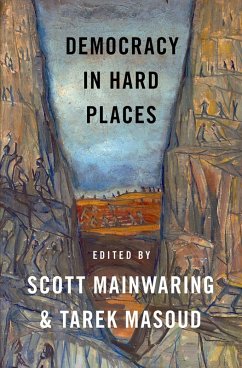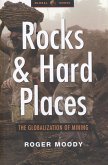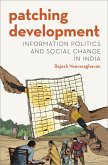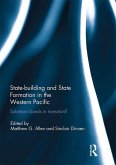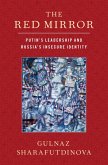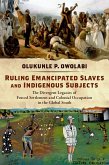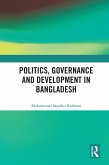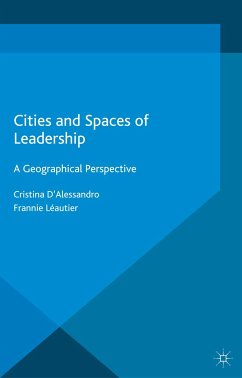The last fifteen years have witnessed a "democratic recession." Democracies previously thought to be well-established--Hungary, Poland, Brazil, and even the United States--have been threatened by the rise of ultra-nationalist and populist leaders who pay lip-service to the will of the people while daily undermining the freedom and pluralism that are the foundations of democratic governance. The possibility of democratic collapse where we least expected it has added new urgency to the age-old inquiry into how democracy, once attained, can be made to last. In
Democracy in Hard Places, Scott Mainwaring and Tarek Masoud bring together a distinguished cast of contributors to illustrate how democracies around the world continue to survive even in an age of democratic decline. Collectively, they argue that we can learn much from democratic survivals that were just as unexpected as the democratic erosions that have occurred in some corners of the developed world. Just as social scientists long believed that well-established, Western, educated, industrialized, and rich democracies were immortal, so too did they assign little chance of democracy to countries that lacked these characteristics. And yet, in defiance of decades of social science wisdom, many countries that were bereft of these hypothesized enabling conditions for democracy not only achieved it, but maintained it year after year. How does democracy persist in countries that are ethnically heterogenous, wracked by economic crisis, and plagued by state weakness? What is the secret of democratic longevity in hard places? This book--the first to date to systematically examine the survival persistence of unlikely democracies--presents nine case studies in which democracy emerged and survived against the odds. Adopting a comparative, cross-regional perspective, the authors derive lessons about what makes democracy stick despite tumult and crisis, economic underdevelopment, ethnolinguistic fragmentation, and chronic institutional weakness. By bringing these cases into dialogue with each other, Mainwaring and Masoud derive powerful theoretical lessons for how democracy can be built and maintained in places where dominant social science theories would cause us to least expect it.
Dieser Download kann aus rechtlichen Gründen nur mit Rechnungsadresse in A, B, BG, CY, CZ, D, DK, EW, E, FIN, F, GR, HR, H, IRL, I, LT, L, LR, M, NL, PL, P, R, S, SLO, SK ausgeliefert werden.

